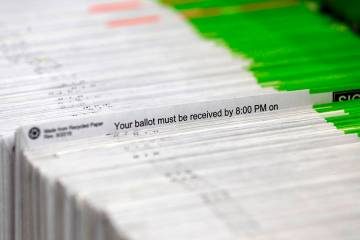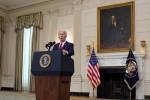EDITORIAL: Accountability for the federal administrative state
Those U.S. Supreme Court justices who still consult the Constitution have recently telegraphed a willingness to reconsider various precedents under which the judiciary must give “deference” to federal bureaucrats when it comes to interpreting disputed regulations.
This would be a blow to the powerful administrative state, which worries Democrats and their progressive allies. Many of their most cherished policy goals depend on an indolent Congress ceding vast authority to Beltway agencies staffed by unelected functionaries who become de facto lawmakers free to impose and enforce rules with little oversight.
Such a system erodes the separation of powers doctrine — a bulwark against government tyranny — by unshackling the executive from the checks and balances of the legislative and judicial branches. And the problem of bureaucrats legislating from their federal offices has gotten only worse.
Last year, the Pacific Legal Foundation released a study in which it looked at every rule issued by Health and Human Services agencies between 2001 and 2018. The foundation determined that 71 percent of the 2,952 regulations were unconstitutional because they “were issued by career staff.”
The foundation has filed a lawsuit contending that only “an officer of the United States” as defined in the Constitution — for instance, an agency chief or someone in a position specifically authorized by Congress — may issue significant policy rules. Yet many agencies now routinely allow career civil servants to exercise such power.
The primary offender, according to the foundation, is the Food and Drug Administration. Some 98 percent of the edicts it imposed during the period in question were unconstitutional because they “were issued by career employees,” wrote PLF attorneys Todd Gaziano and Thomas Berry in an April op-ed for The Hill.
“For FDA rules,” Mr. Berry and Mr. Gaziano noted, “the signature of the Senate-confirmed FDA commissioner or HHS secretary is the rare exception. Nor were many of these insignificant rules. At least 25 of the rules in question, they reported, “had economic impacts of $100 million or more.”
It is an abdication of duty — not to mention constitutionally dubious — for agency heads to delegate rule-making authority to career bureaucrats two or three steps removed from the voters. “Employee rule-making is not merely a legal problem … it’s a monumental lapse in democratic accountability,” Mr. Berry and Mr. Gaziano asserted.
But all that may be at least partially moot if the Supreme Court reasserts its oversight function. On Monday, in a dissent to a high court decision to bypass a tax case, Justice Clarence Thomas again advocated that the justices take a more active role in holding federal agencies accountable for ensuring their regulations comport with the nation’s founding document.
That would be an overdue step toward stuffing the obese regulatory state back behind its constitutional boundaries.





























